I struggled to create a charter school as long as I could. I even got a school bus driver license, and sought locations. The Regulations are too many to read, much less comply with.
The moment I gave up was when I was filling out the IRS application to become a non-profit and was told to send a $600 fee.
By the way, I noticed that regulations for teacher-to-student ratio and the required amount of circulated air per child are not evident in public schools.
_*_*_*_*_*_*_*
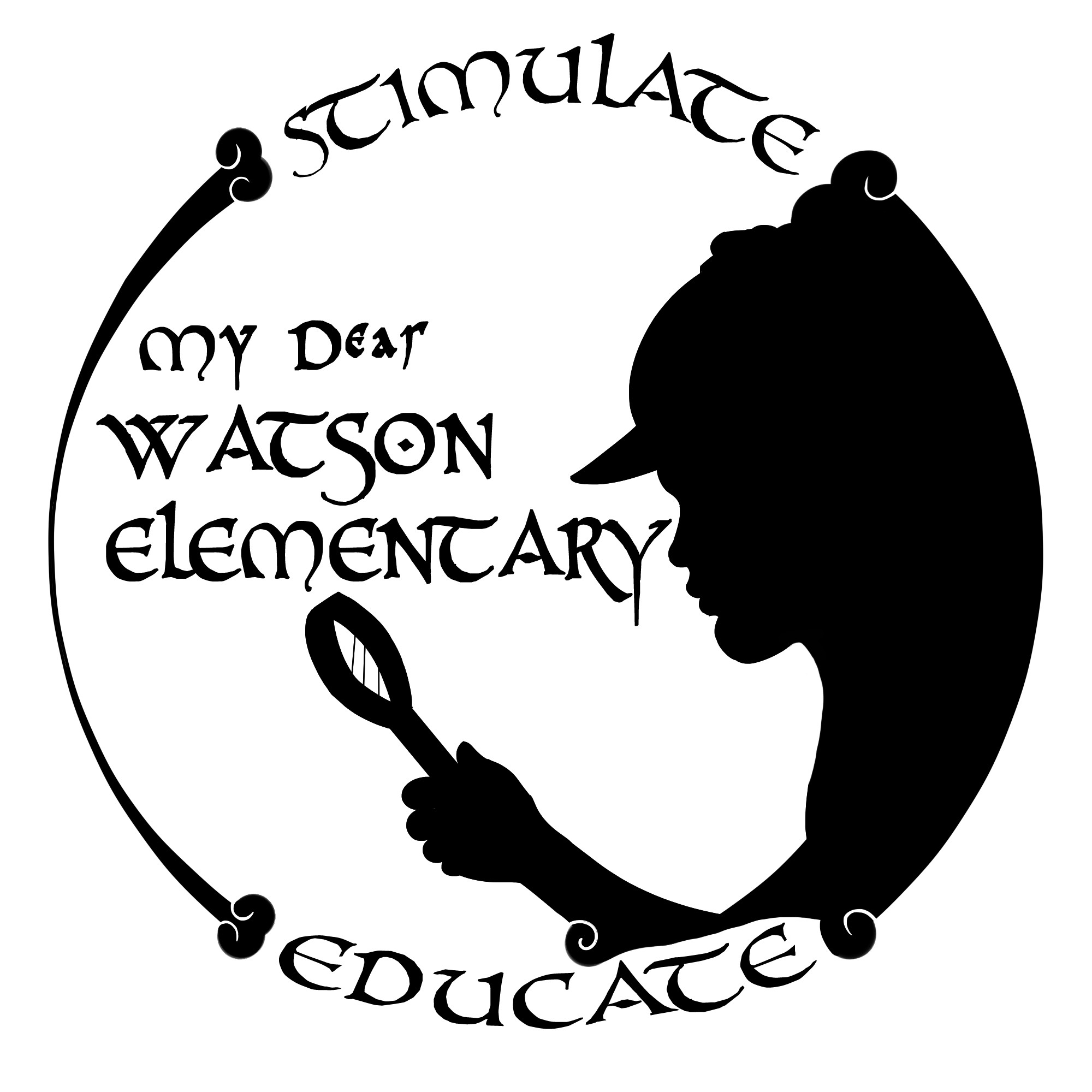
These were the plans for a
New Charter School with an Old Idea:The idea that children should run, play, climb, jump, do chores and burn energy for a healthy mind, body and person who can best learn, create, and find his or her place in the world.
That the world needs creative problem solvers and knowledge seekers.
Schools are bogged down in “teaching to the test” to get Federal dollars. Standardized tests are useful to compare teaching methods between schools and states, but perhaps more testing doesn’t lead to better test results. Perhaps, it leads to kids disliking school.
Kids are spending too much time sitting at desks, their heart rates slowed and their minds bored. Kids need exercise, not candy bribes.
Class work is important -- many concepts must be learned -- but the sooner a child can apply those concepts hands-on, to see what works and enjoy success, the better the child will remember them.
Mind over Matter Matters - Facebook
10 o'clock Scholar IdeasPLANNED FEATURES of
GRADES & HOURS
My Dear Watson Elementary
Charter School
(Canceled)
• Kindergarten thru 5th.
• Day School: 8 to 3pm
• Evening School: 4 to 11pm -- Parents can work while their child is in school!
• Before and After Care for a fee.
LOCATION
• Have a location in mind, but cannot sign lease until enrollments May 2020.
TRANSPORTATION
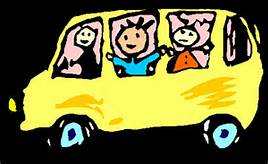
• We are buying our own BUS! Low cost or free bus rides to many neighborhoods.
• Lots of field trips to learn about the world.
• Nature hikes to Franke Park woods.
CURRICULUM
• Lots of activities with math, science, history & literature worked in.
• We set up detective scenarios, quests and challenges for kids to figure out solutions.
• Working practical uses of arithmetic into fascinating stories from history, science, literature and current events, from how pioneers lowered covered wagons down cliffs, to a tour of the planets, to running a bakery, to bridge construction, to the breakup of the Space Race.
• Channeling kids' natural physical restlessness and appetite for play, risk, competition and creativity, into constant activities and performances that re-enforce the academics they are learning.
• Our school will comply with all national aptitude tests, teacher-student ratios, teacher certifications and non-discrimination regulations, insurance requirements and fire, safety and building codes, same as public schools.
CREATIVITY & PERFORMING
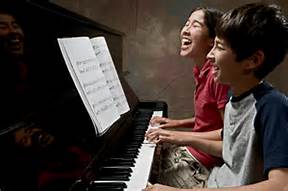
• Kids create instructional videos, skits, songs, puzzles, books, school chants & songs, worksheets & experiments for other kids.
• Kids produce bilingual skit videos, creating a language teaching library.
• Competitions with other schools.
• Performances for the families, plus creating a Halloween spook house & Winter and Spring show.
• Folk & partner dancing, normalizing boy & girl relationships.
• Choreographing new dances, learning to count the beats, for fun, athletics and performing. • Learn simple keyboard & playing one part of hit songs within a music team.
• Murals: design, enlarge, prepare surface, paint-learning brushwork, paint mixing and ladder climbing.
RECESS, THE PLAYGROUND & LUNCH

• Multiple recesses a day are for play & building things, tending gardens and school pets, practicing skills for certification or to break skill records. Learning natural math by balancing, spinning, swinging, keeping score and game strategy.
• A rockin’ climbin’, slidin’, swingin’ playground with many structures, paths, tubes, bridges, obstacle course, and an outdoor stage built by pros with students’ help. Hopscotch, jump rope, 4 square & jacks.
• We hope to have a kitchen in our school. If so we are not taking Federal dollars and the attached nutritional restrictions. We will serve hearty home cooking with lots of fruits, vegies, whole grains and meat, and eat as much as you want because you will burn it off in activities. Dessert is a reward for not misbehaving.
PROJECT SPACES to create and experiment in • Playground • Sim-Scape: moveable paths & bridges & creeks to create play cities, roads, scenarios • Walls & Murals • Time Line - very long and expandable to add on whatever we are talking about. • Library - filling it with books & media. • Garden - kids can have their own small plots & crops to raise, harvest & cook. • Outdoor Stage - for playing around, skits and dancing evolving to performances. • TV Studio - News gathering school, local & national stories. Events, issues, documentaries, record events. Learn video/film techniques & scripting and live presentation. LIFE SKILLS & CAREERS
• Kids exposed to many career descriptions and how to get the job.
• Field Trips to job sites.
• Classes take turns making lunch, with adult supervision.
• Kids learn how to use tools with adult supervision.
• Kids create their own little businesses learning math, money, life skills, hard work, production, pleasing the customer, publicity, failure and success.
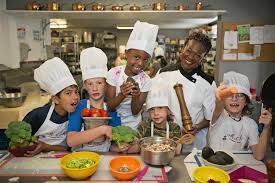
• Play acting personal behavior from polite greetings to confronting and calming a bad situation. • Self defense: quickly analyzing a threat and choosing flight, fight or creatively diverting the danger. • Kids play at job interviews and simple accounting -- Did you make a profit???
• Kids learn life skills: cooking, sewing, fixing things, gardening, following instructions, building, taking devices apart and putting back together, video production, journalism, speaking to a crowd, introductions, handshakes and manners.
-=-=-=-=-=-=-=-=-=-
Organizer: Jeannette Jaquish
I have created and produced Science Gladiators 2000, a science and math TV game show in Tucson, Arizona.
I created the Firehouse Theater in Fort Wayne that produced a new play a month for 3 and a half years, paying our expenses with ticket sales and side earnings and a few small donations, but no subsidies or grants. I created and supervise a theatrical stage at TekVenture in Fort Wayne, IN.
I have written over 40 action-packed children's theater scripts that have not-so-subtle overtones of being responsible for your actions and standing up to oppression. www.theaterfunscripts.com
I am driven to do this, and I will do it at this school.
One major feature of this school will be the playground constructs we will build for our playground. There will always be a building project going on during school hours: playground constructs, pathways, pens for the animals, pulley set ups, outdoor benches and stage, science experiments, mazes, creative hopscotch grids, game arenas, mural painting, etc. Educating does not stop at recess, it is embedded at recess. As we will have lots of recesses, of various age groups at different times, kids can choose to play, work out a skit or dance on the outdoor stage, visit the animals, do their outdoor daily chore, or help the builders, whose job is to guide the kids to practice and pass the safe tool use test, understand the construct and actually build, resulting in their name being included on the plaque. During the work, the adult builder will prompt the kids to figure out the constant math, physics and science involved. And prompt the, "What could go wrong?" constant question we use all through the curriculum to check safety and cause the kids to really ponder what is going on. And artistry and function - How to make this charming and attractive? - Will this be used how we want it to be used?
I am working on A CURRICULUM that blends academics plus required Indiana math and English requirements with hands-on, solution finding, exciting activities, real stories from science and history, building projects, games, experiments, detective scenarios, theater and music, and lots of life skills and hands on tool use. The plan is to teach the basic academic concept, such as basic arithmetic, basic measuring, what a verb is, comprehending a question, then put it to use on projects, with lots of physical action to keep the kids invigorated and enthused, with multiple recesses where there is always a construction project to join, and lots of field trips to see industry and nature, and constant little math observations asked of the kids.
For example, Washington crossing the Delaware is an historical sundae dripping with math and sprinkled with science.
And literary suspense.
The clock is ticking to get across before sunrise and surprise the British and Hessians. The boats won't hold them all and the weight of soldiers and weapons has to be calculated to determine how many boat trips, and how long the crossing will take. Should Washington send soldiers back to carry more boats? It is dark. The temperature is dropping and some of the under-dressed men are freezing to death, leading our kids to the interesting topic of freezing temperatures. The river is flowing which carries them downstream -- they have to calculate its speed, estimate its drag on the boats, and multiply it by the time it takes to cross to derive how far upstream to launch. It is like calculating a parade; the front leaves and sometimes arrives before the end has even started. So far, this lesson can be simply presented: storytelling, drawings, equations, a map with toy soldiers and boats, PBS video clips, internet research to find out the date, hours, phase of the moon, weather, motivation and result, still in the classroom. We can plot the actual trek on a map.
The bravery and sacrifice becomes another lesson, about effort to achieve your goal. About what your goal should be. About making decisions with not enough information.
Through all this we are reading various versions of this historical story, comparing various characters' points of view.
You can wrap up the lesson here or get ambitious.
The teacher guides the students in writing dialogue for the characters as they hash out these problems and calculations. And then once it is all figured out on paper and walking it out, you transform the playground, cast the characters, give them some lines, create some props, and do a dry run, find staging or math mistakes and fix them.
Figuring out how to represent river flow and the layout is like staging a play. Some actors will be the river current and ice floes.
They practice until they can do it all the way thru and then perform it for the other students and families and later at a public outdoor festival, and some students have videotaped bits from the start and edit a documentary. And that video can be reproduced and used by other schools. And all those math and historical concepts and the story will be clear and solid in the kids' memories, and somewhat in the memories of those who simply watched it.
LEARNING BY TEACHING & BUSINESS
The best way to really remember a lesson is for the learner to present it to someone else. They have to imagine the other person's point of view, and figure out how to explain the lesson. We will teach them video production, script writing, publishing skills and app creation, and they will be creating curriculum merchandise such as videos, worksheets, puzzles, activity instructions, games and projects, and so on, that they can contract with us - authorized by their parents - to sell to other schools, thus learning trademark, patent and copyright law, contracting and marketing.
Show the kids how to set up school based little businesses, buying and selling to each other, and at the once-a-month school playground farmers market/swap meet with our kids performing their curriculum skits and other acts on the playground outdoor stage.
ELL, English Language Learners will also teach us. Children learn language by being surrounded by it. We do simple funny skits with English speakers and Other Language speakers repeating back and responding to each other in videotaped skits. Soon everyone knows the story, and mo matter what language it is performed in, the audience knows what the meaning is, and is learning the new language.
GETTING FEEDBACK FIRST
I am in the process of researching all the regulations -- don't believe anyone who says charter schools have no accountability -- the regulations are extensive! Besides that, I am writing up all these teaching ideas of mine before I apply for a charter school. I want to develop a curriculum mixing academics with stories from history, literature and science. I plan to offer these lessons on the internet and to charter and private schools, and to any public school teachers willing to try them, long before I open this school, to get their feedback.
KIDS SHARE CHORES of the school, learning practical skills. Parents are told, "Don't enroll your child here if you don't want them to do chores and work with slightly dangerous tools." Money saved goes to all those extra field trips.
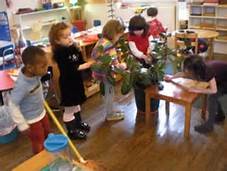
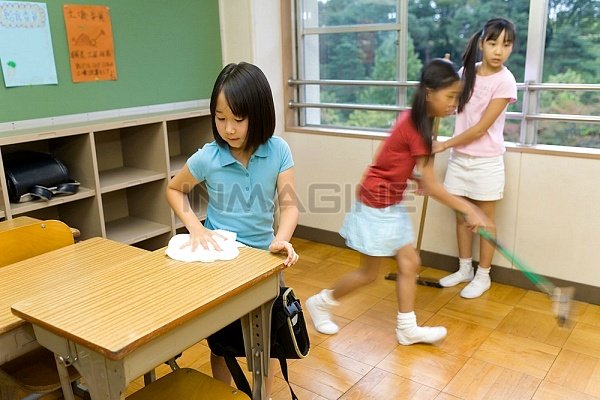
And as for FIELD TRIPS -- which the public schools rarely do: ask any public school student -- our school will do field trips daily. Organizer, Jeannette Jaquish has earned her school bus CDL license and experience, just so she can drive our school bus, to save funds for certified teacher pay. We will fuel and maintain the bus with donations and sponsors.
ACCOUNTABILITY and TRANSPARENCY
This school's financial records will be posted online, including the wages of named administrators and un-named teachers.
FUNDING and HOW IN THE WORLD TO GET STARTED
On my last reading of the Indiana Code and the Indiana Charter School Board (ICSB), the state of Indiana pays about $5,000 per student, divided into 12 payments, one per month starting in June of the school year which starts mid-August. The tricky thing is this: The new school needs to get an enrollment count in May - before the previous school year is over - to start that per student funding. This means parents of kids still in their "old school" must be convinced to sign a form releasing their current school from holding a spot for their child BEFORE this new charter school has gotten any funding to create the school or hire teachers to show the parents.
It will be tricky to convince parents that I have a school with no money to make a school, but I live by the school motto: "We figure it out!"
I have found a building and grounds that will be flexible and expandable to be a school, with the regulatory architecture and safety features. It is on a medium busy road, in a low rent area very near the Franke Park woods nature trails for science and exercise. The building is in basically good architectural shape with a wide open inside that will work well however we want to insert the walls, even modular walls so we can alter it easily. I will offer to clean up the place and create classrooms with new paint, flooring, tables and chairs to show how the classrooms will be. I will build and buy some creative playground equipment. I will build a sign - another of my skills. In other words, I will create an example of the school, before it is funded, to attract parents to get students to start getting funding to finish the job.
I will get some teachers to unofficially, and secretly so they don't get fired from their public school job, pledge to work for me if the school is a go.
I will write up my best media release ever to get lots of interviews and of course, unavoidable attacks from public school advocates causing great publicity for the school's April and May Open House house at which I honestly explain the situation and ask parents to sign a pledge:
"I will enroll my child if 59 other students enroll."
This is reality TV at its finest, which is not a high bar to aim for. Of course, I want more than 60 students - that's just 3 classrooms of 20 students each, for a legally required 20:1 student to teacher ratio, but that is enough to fund the first year if no more enroll, but, of course, more will. Those 60 students will cause the start of funding, just 2 months before school starts, and as we paint murals on the building and something snazzy on the bus and park it out front, and put up really cool playground towers and slides to catch the eye, and buy equipment and tools, and hire and train teachers, and hire contractors to finish up the classrooms, more kids will hear about it and beg their parents to enroll them. Then in September, those new students are counted and the funding increases. The trick is to get that first batch of kids enrolled by May of the school year to start the ball rolling and commit to spending and building and training.
PLEASE comment!
What life skills do you wish you had been taught in school?
What are your favorite applications of math and science?
Would you be an unofficial advisor to me? Commenting on my plans and offering any professional advice you can?
Thanks!
-- Jeannette Jaquish, 260 750-9013
jeannettejaquish@yahoo.com
This website was born 2-8-2017. Please check back as it grows.
(This project was abandoned March 2018.)
Email: ecstatictheatrics@yahoo.com